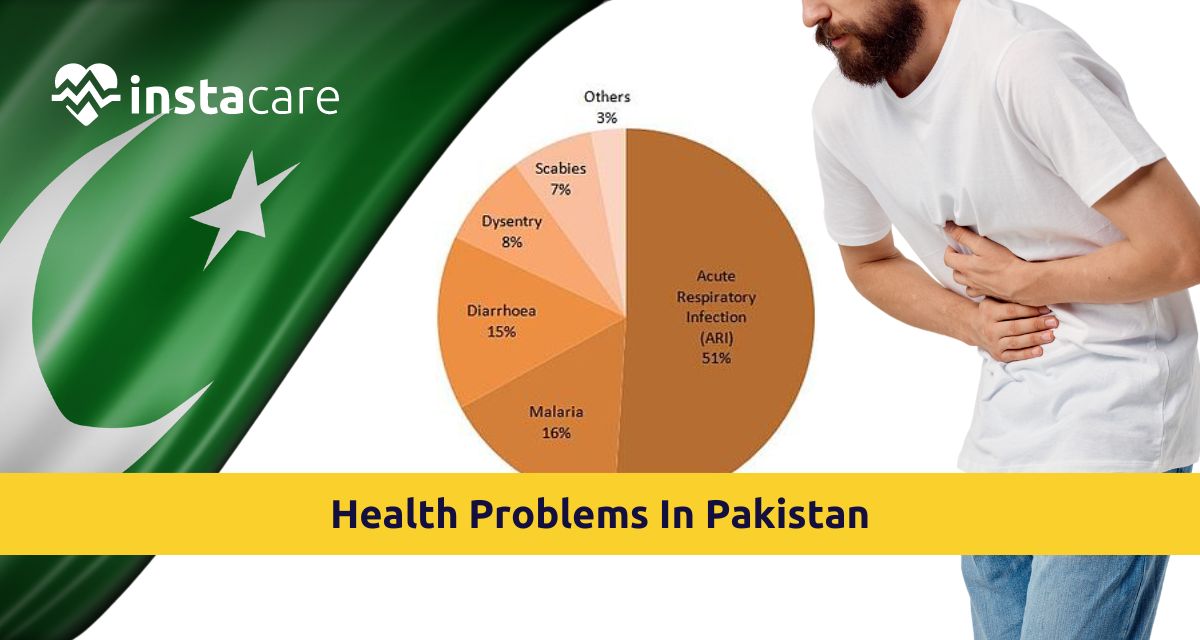Pakistan is a country that spends a very low budget on healthcare. People living in Pakistan do not receive enough healthcare facilities. Day after day, it has to face distinct challenges related to the healthcare sector. People of this country are still fighting with tuberculosis and polio. Whereas many countries have already eradicated them completely. According to a survey done in 2011 by The Centers for Diseases Control and Prevention, 64 infants die out of every 1000 infants in Pakistan. It is on the third rank according to the infant mortality rate. Above 60 million people live below the poverty line in this country. There are many common diseases with which people of Pakistan are still fighting. In this article, we are going to discuss the common health problems in Pakistan.
Malaria
Malaria is a disease that occurs upon a particular type of mosquito bite. It can result in high-grade fever, nausea, vomiting and diarrhoea. Malaria is common in Pakistan since a large population lives in slums near to unhygienic conditions. If not treated at early stages, malaria can become life-threatening.
Tuberculosis
Tuberculosis is another common health problem in Pakistan. It is a contagious respiratory illness that spreads through respiratory droplets. A healthy person can catch tuberculosis if an infected person coughs and sneezes near to them. It can be a life-threatening condition if not treated early. However, treatment is there for tuberculosis but following the regimen properly is necessary. If not taken properly, the disease can become worse and difficult to treat, resulting in multidrug-resistant tuberculosis. The patient suffering from tuberculosis must observe self-isolation as it can spread rapidly.
Dengue Fever
Dengue fever is also a common problem in Pakistan. It occurs due to the bite of a particular mosquito, eventually resulting in life-threatening condition. In 2019, a high record was made when 44000 cases were reported of dengue. It shows signs and symptoms of high-grade fever, nausea, vomiting, bleeding, extreme lethargy, decrease in platelets, and diarrhoea. If not treated at an early stage, it can result in the death of a person. It is not contagious, but it can spread through a mosquito bite. If a mosquito bites an infected person and then bites a healthy person, it can transmit it to the healthy one.
View More: 8 Best Daar Cheeni Benefits You Must Know About
Stroke
In Pakistan, around 350,000 cases are reported annually. The most common cause of stroke is high blood pressure. People living in Pakistan do not get clean food to eat. A daily wager or a labourer can not eat healthily. They can not buy fruits and salads. They just eat what they get at low cheap rates. Use of low-quality oils and ghee is a common reason for poor health, high blood pressure, high blood cholesterol levels. Moreover, the lack of awareness is another cause to it. People do not get awareness sessions on the importance of eating and living healthily. They do not know the importance of maintaining a healthy weight and work out.
Diabetes
According to a survey in 2017, 35.3 million people were found diabetic in Pakistan. It is also a common health problem existing among the people of Pakistan. Since people here do not get awareness sessions about clean eating, they eat everything they wish, they want. Many people do not know how harmful excessive sugar intake can be for them. They keep consuming large quantities of it in their lifetime, which eventually results in diabetes. Moreover, a sedentary lifestyle is another problem. Many people live all their life without a daily exercise routine.
Hepatitis
Hepatitis A and E spread through drinking unclean water and consuming unhygienic food. Since the quality of water in Pakistan is below average, the cases of hepatitis A and E keep on increasing with the passing days. Another common problem is hepatitis C and B which spreads through unscreened blood transfusions and the sharing of needles and razors. People in the country do not know that sharing needles and razors can be dangerous for them.
Conclusion
People of Pakistan need to get proper awareness sessions about common health problems and their prevention. Proper awareness can help in the prevention of the spread of the above-mentioned diseases. Moreover, higher authorities should work to promote physical activities among all age groups. Not only children should participate in sports, but adults and people of older age groups should also do that.
Please book an appointment with the best General Physician in Lahore, Karachi, Islamabad, and all major cities of Pakistan through InstaCare, or call our helpline at 03171777509 to find a verified doctor for your disease.


